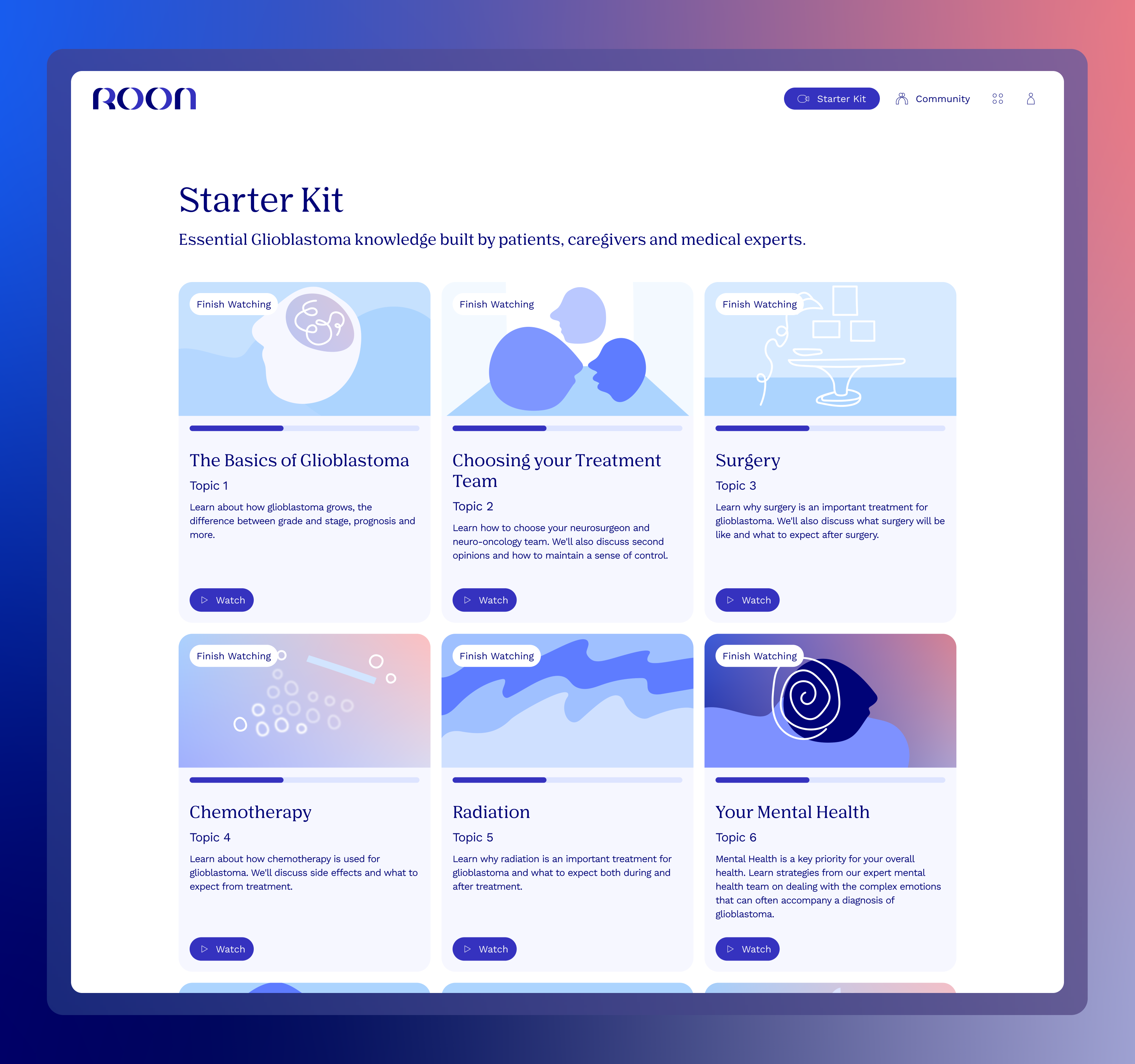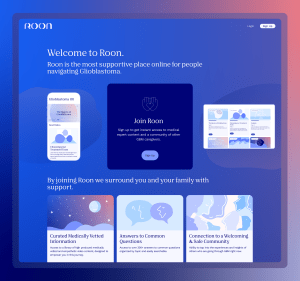As individuals try to manage medical information and understand their conditions, many typically turn to Google or WebMD — neither of which does much to verify or provide the latest information. But Roon plans to change this with a medical education platform for vetted information, sourced strictly from doctors, patients, and caregivers.
By curating the data it makes available around individual conditions, Roon is meant to reassure patients and caregivers that it’s accurate and well sourced.
“We do pay lip service to caregivers, but there’s so much more that can and should be done to recognize the important role they play in managing health,” said Roon co-founder Rohan Ramakrishna, who previously worked as a neurosurgeon. “And so when we build this medical canon of information, we take that all into account, so that we can meet the unique needs of both patients and caregivers within any individual condition.”
Along with Ramakrishna are Pinterest’s former heads of marketing, Vikram Bhaskaran, and partner engineering, Arun Ranganathan. They entered the health tech space with Roon hoping to reinvent what it means to receive medical information after working as caregivers themselves.
Bhaskaran and Ranganathan realized it was unnecessarily difficult to look up information about their loved ones’ conditions. After connecting on the idea with Ramakrishna, Roon was born.
“There’s so much medical misinformation… in 2022, it’s crazy that patients don’t have anywhere to go to answer questions,” Bhaskaran told TechCrunch in an interview.
The company claims to be “humanizing medicine” for people who have questions but don’t have a place to turn to.
Roon is meant to provide what they consider “medically vetted” information to caregivers and patients about grave medical conditions. To begin with, they are only providing information related to Glioblastomas, a type of brain tumor, and have 200 active users. The company hopes to expand to include dementia, pediatric cancers and ALS.
“Everything we build starts with actually finding the experts in a condition and really enabling them to create content that is suited for patients and caregivers,” Bhaskaran said.
Someone using the platform is given a medical starter kit — organized information to provide a general understanding of the condition — then they can ask specific questions if it wasn’t already answered on the platform’s FAQ.

Image Credits: Roon
Although the company claims that there is little to no competition, obviously anyone can still do a simple Google search and receive information (although it may not be as concise) or turn to WebMD (which aggregates and summarizes information). One thing the founders also emphasized to TechCrunch was that doctors typically spend time answering the basic questions and not delving fully into the condition — though for the patient and caregiver their doctor can still be a source of information.
For a deeper look at a given condition, patients and caregivers may want to hear directly from today’s specialists, as well as others who can share their experience firsthand. That’s the curated content Roon hopes to make available.
Despite being a little over a year old, the company has garnered support in the form of a $7.5 million Seed Round led by FirstMark, TMV and Sequoia, with participation from SV Angel, Maverson and M13. The company also secured 11 angel investors and four advisors.
For now the company says they are being “a little bit vague on where we’re heading because we’ve had some big insights about how we take this, but all pieces of it will get better.” However, the founders told TechCrunch this round’s funds will be used to expand their team and begin implementing more condition information.
“There’s all this time, energy and money being spent on making shopping easier,” Ramakrishna said. “What if we could spend that same amount of energy and ingenuity in making the experience of health so much better?”
source https://techcrunch.com/2022/08/12/roon-wants-to-educate-patients-with-freshly-sourced-info-on-their-conditions/

Comments
Post a Comment